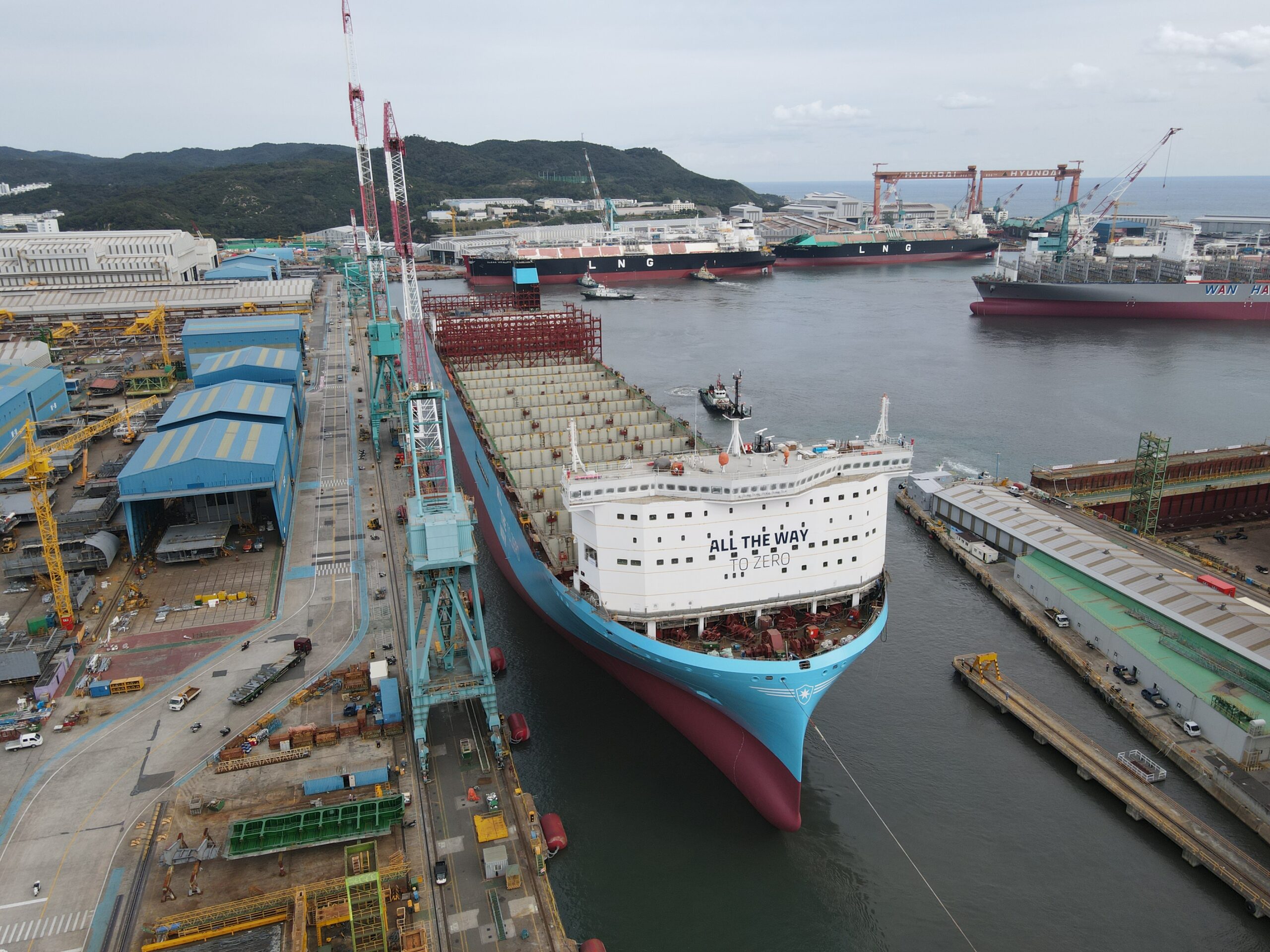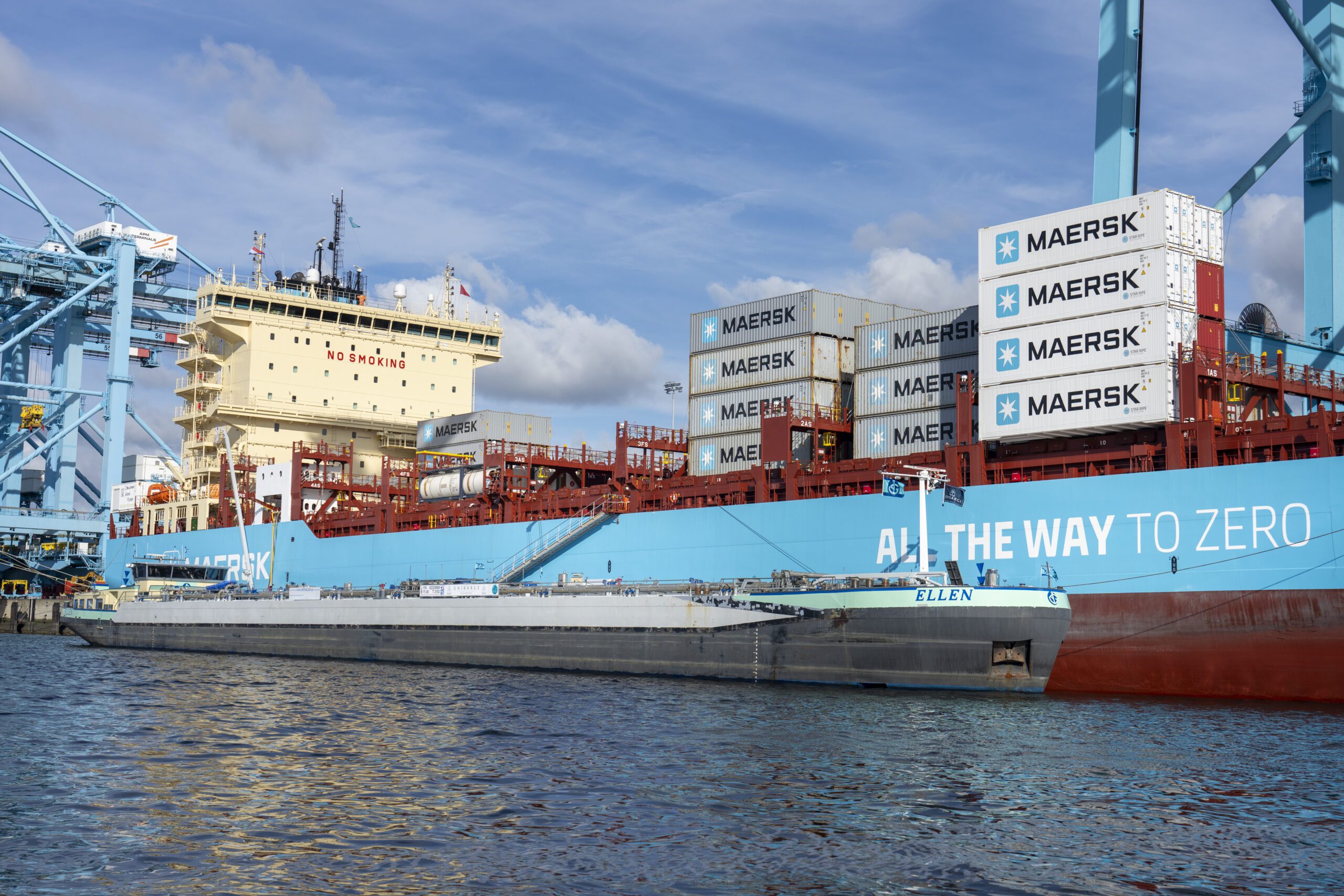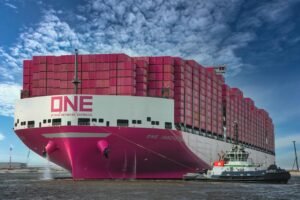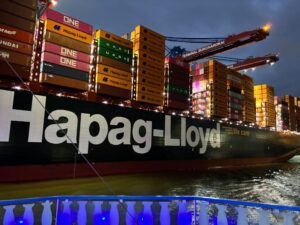
A.P. Moller-Maersk (Maersk) partners with Lloyd’s Register and CORE Power in a nuclear container ship regulatory study that could provide the pathway for nuclear commercial shipping.
The joint regulatory assessment study will determine the safety and regulatory considerations for a potential next-generation nuclear-propelled feeder container ship to undertake cargo operations at a port in Europe.
“The initiation of this joint study marks the beginning of an exciting journey towards unlocking the potential of nuclear power in the maritime industry, paving the way for emissions-free operations, more agile service networks and greater efficiency through the supply chain,” said Nick Brown, chief executive officer of Lloyd’s Register.
Using a fourth-generation reactor to undertake cargo operations in a European port, Lloyd’s Register and CORE Power will conduct research on the regulatory feasibility and frameworks that would need to be established for a nuclear container ship.
The industry leaders, who are joined by Maersk, have formalised their collaboration through the signing of a joint development project agreement to undertake the study.
CORE Power brings to the study its expertise of developing advanced nuclear energy technology for maritime applications, whilst class Lloyd’s Register brings its experience in the maritime sector with Maersk leading the way in shipping and logistics.
The study will investigate the requirements for updated safety rules along with the improved operational and regulatory understanding that is needed for the application of nuclear power in container shipping.
Furthermore, this research will provide insight for maritime people who are exploring the business case for nuclear power to help shape their fleet strategy towards achieving net zero greenhouse gas emissions.
CORE Power asserts that “There is no net-zero without nuclear.”
Mikal Bøe, chief executive officer of CORE Power, said: “A critical key to unlocking the vast potential for nuclear energy to transform how the maritime sector is powered, is the standards framework for commercial insurability of floating nuclear power plants and nuclear-powered ships that would operate in nearshore environments, ports, and waterways.”
“Nuclear power holds a number of challenges related to for example safety, waste management, and regulatory acceptance across regions, and so far, the downsides have clearly outweighed the benefits of the technology,” commented Ole Graa Jakobsen, head of fleet technology at A.P. Moller-Maersk.
“If these challenges can be addressed by development of the new so-called fourth-generation reactor designs, nuclear power could potentially mature into another possible decarbonization pathway for the logistics industry 10 to 15 years in the future,” Ole Graa Jakobsen added.



